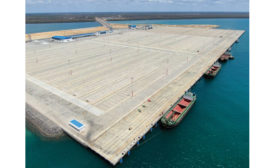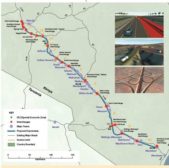Home » Keywords: » Kenya
Items Tagged with 'Kenya'
ARTICLES
ENR 2023 Global Best Projects
Airport/Port Award of Merit - Lamu Port - First Three Berths and Associated Infrastructure
December 7, 2023
The latest news and information
#1 Source for Construction News, Data, Rankings, Analysis, and Commentary
JOIN ENR UNLIMITEDCopyright ©2025. All Rights Reserved BNP Media.
Design, CMS, Hosting & Web Development :: ePublishing



